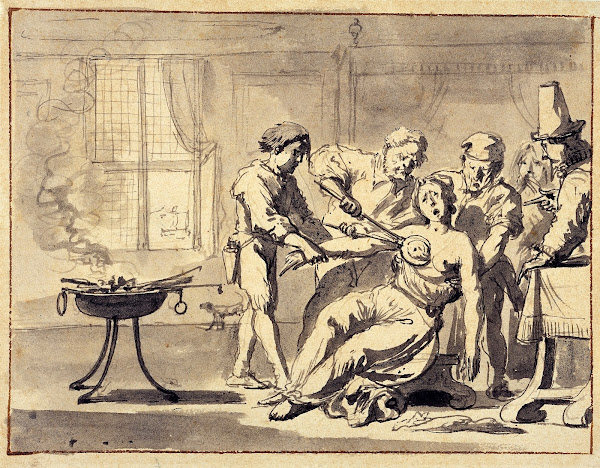Why are cosmetic companies allowed to exaggerate their claims
When dissecting cosmetic commercials, one can discern a strategic use of language: while they often promise transformative effects such as renewal, brightness, smoothness, and clarity, they refrain from explicitly asserting the efficacy of their products in curing specific skin issues like wrinkles or roughness. This careful wording serves to navigate the intricate legal landscape surrounding cosmetics advertising. Indeed, the regulatory framework governing such advertisements underscores the delicate balance between permissible exaggeration and outright false claims.
In crafting their messaging, cosmetic companies tread cautiously to avoid running afoul of regulatory bodies like the Food and Drug Administration (FDA) in the United States or the European Union's Cosmetic Regulation. These agencies closely scrutinize product claims to ensure compliance with stringent standards. While advertisers capitalize on the allure of their products, they must remain vigilant in their portrayal of benefits, steering clear of definitive assertions regarding therapeutic outcomes.
- Federal Trade Commission (FTC): oversees advertising in the US and prohibits deceptive or unfair advertising practices. However, the FTC has limited resources and relies on consumers to file complaints.
- Food and Drug Administration (FDA): regulates the safety of cosmetics but doesn't evaluate the efficacy of their claims. This means companies can make claims about how their products make you look, as long as they don't make drug-like claims (e.g., curing wrinkles).
Regulations in place:
This distinction is pivotal in safeguarding consumer trust and preventing deceptive practices. By couching their assertions in terms of subjective experiences rather than objective results, cosmetic advertisers navigate the legal landscape with precision. However, the interpretation of such claims can vary, leading to occasional disputes and regulatory interventions.
- Vague language: Claims like "flawless" or "ageless" are subjective and difficult to prove false.
- Before-and-after photos: These can be heavily edited to exaggerate the product's effects.
- Testimonials: Paid endorsements or cherry-picked positive reviews can be misleading.
- Scientific claims: Studies cited by companies may be small, poorly designed, or funded by the company itself.
Reasons why some claims might be misleading:
Ultimately, the legality of cosmetics advertising hinges on a nuanced interpretation of language and intent. As companies strive to capture consumer interest without overstepping legal boundaries, the evolution of regulatory frameworks and industry best practices continues to shape the landscape of cosmetic marketing.
- Be skeptical of claims: Look for specific, quantifiable claims and research the supporting evidence.
- Read reviews: Check out independent reviews from consumers and beauty experts.
- Ask questions: Contact the company directly if you have questions about their claims.
- Report misleading ads: File a complaint with the FTC if you believe an ad is deceptive.
What consumers can do:
Do cosmetic companies engage in false advertisment to generate sales?
It's difficult to make a blanket statement about all cosmetic companies, but certainly some engage in practices that could be considered misleading advertising to increase sales. This doesn't necessarily mean intentional falsehoods, but rather tactics that stretch the truth or lack sufficient evidence to support their claims.
Here are some common ways cosmetic companies might misleadingly advertise:
- Vague Claims: Terms like "flawless," "ageless," or "youthful" are subjective and impossible to define objectively. Companies can make these claims without fear of legal repercussions because proving their falsity is near impossible.
- Exaggerated Before-and-After Photos: Heavy editing, lighting tricks, and even digitally removing blemishes can create dramatic "before-and-after" transformations that misrepresent the actual effects of the product.
- Cherry-Picked Testimonials: Companies often feature positive testimonials from paid influencers or carefully selected customers, creating the illusion of universal praise. These may not reflect the experiences of the majority of users.
- Misleading Ingredient Claims: "Natural" or "organic" labels can be ambiguous and unregulated. Some products might only contain a small percentage of natural ingredients while relying heavily on synthetic components.
- Unsubstantiated Scientific Claims: Companies may cite studies to support their claims, but these studies might be small, poorly designed, or funded by the company itself, casting doubt on their validity.
- Exploiting Insecurities: Preying on consumers' insecurities about their appearance is a common tactic. Ads that depict flawless models or highlight age-related concerns can pressure customers into buying products based on emotional manipulation rather than objective needs.
While not all cosmetic advertising is misleading, it's important to be aware of these tactics and approach claims with a critical eye. Here are some tips for discerning truth from exaggeration:
- Look for specific, quantifiable claims: Instead of "ageless," ask for evidence of wrinkle reduction or skin elasticity improvement.
- Research the science: If a claim relies on scientific studies, find independent sources to verify their findings and methodology.
- Read reviews from diverse sources: Don't just rely on paid influencer testimonials. Look for reviews from everyday consumers with different skin types and concerns.
- Be wary of emotional appeals: If an ad makes you feel insecure or pressured, it's likely trying to manipulate you.









